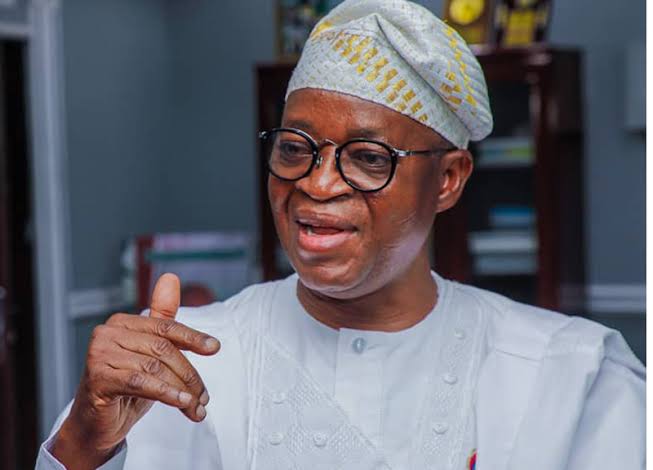
Through the Blue Gates of Nigeria’s Economy
By Tahir Ahmad
At a recent editorial meeting in the Abuja office of Image Merchants Promotion Limited (IMPR), publishers of PRNigeria and Economic Confidential; Alhaji Yushau Shuaib, the Chief Executive Officer of IMPR, turned to us and posed a question that caught everyone off guard.
“Do you know why it is called the blue economy?” Silence fell across the room. We exchanged glances, unsure. He smiled and offered an answer that has stayed with me since. “When you gaze at the ocean, where the sky touches the sea on the horizon, you see a vivid, uninterrupted blue.
“That is the blue in the blue economy.” That simple yet profound explanation transported me back to my secondary school days, on an excursion to Badagry in Lagos. I stood on the beach, watching the waves roll in, mesmerised by the distant cargo ships approaching the shore.
At the ports, I saw men in uniform—officers of the Nigeria Customs Service—conducting inspections, stamping papers, checking goods. I was young, but I could tell something important was taking place.
It was my first personal encounter with how a nation earns, secures, and sustains itself through trade. Today, that childhood impression has found clarity in fact.
Nigeria operates six key seaports: Apapa, Tin-Can Island, Calabar, Delta, Rivers, and Onne. Alongside these, over a dozen inland dry ports have been established across cities such as Kaduna, Funtua, Kano, Jos, and Ibadan.
While many of these are still under development, their purpose is clear. These ports are not just architectural structures. They are arteries of our national economy. They keep Nigeria breathing, producing, and earning.
But a port is only as efficient as the system that runs it. And in recent years, the Nigeria Customs has embraced a quiet revolution in efficiency.
Working in partnership with the Federal Ministry of Finance and the Nigerian Ports Authority, it has introduced modern customs management systems, digital clearance platforms, and scanning technologies that speed up clearance and close the door on corruption.
One example stands out. On June 10, 2025, Comptroller Frank Onyeka of Tin-Can Island Port met with stakeholders. In his words, “My door is open. I deliberately stay beyond 10 p.m. to attend to people.”
He was not just offering reassurance. He was affirming the values of public service. He spoke about the Unified Customs Management System—popularly known as the B’odogwu Platform—which allows seamless documentation and clearance.
At Tin-Can and elsewhere, this is no longer just policy. It is practice. The results speak for themselves. According to official data, the Nigeria Customs generated over ₦1.3 trillion from port operations in the first quarter of 2025 alone.
This revenue, earned despite tough economic conditions, signals the strength of port-driven trade. But the story does not stop at the coast. Inland ports, often overlooked, are reshaping trade from the grassroots.
Consider the Kaduna Inland Dry Port. It has transformed how northern exporters do business, saving them from the time and cost of transporting goods to Lagos. Today, containers are loaded in Kaduna and shipped directly to global markets.
The dry ports in Kano, Funtua, and Jos are also enabling farmers and manufacturers to reach new markets faster and cheaper, boosting the nation’s non-oil exports.
Beyond trade and revenue, Nigerian ports have also become zones of security vigilance. The Nigeria Customs works closely with the Nigerian Navy, Immigration Service, and Marine Police.
Together, they have deployed satellite surveillance, drones, and geospatial intelligence to secure our coasts and borders. From rice smugglers to arms traffickers, the enemies of the economy are being tracked and stopped before they can breach our gates.
But numbers, once again, tell only half the story. Our ports are more than logistics hubs. They are arenas where sovereignty, commerce, and diplomacy intersect. A nation that controls its ports controls its economic future.
For a country with vast borders and a long coastline like Nigeria, these ports are the anchors that keep us stable and relevant. It is easy to forget the importance of a shipping container, the relevance of a customs scanner, or the long hours put in by officers in uniform.
But every inspected package, every scanned shipment, and every cleared consignment represents not just revenue, but jobs, livelihood, and growth. This is where government policy becomes reality.
This is where Nigeria, often dismissed as a sleeping giant, proves that it is in motion. In the ports of Apapa, in the terminals of Kaduna, and in the hands of customs officers across the country, the Nigerian economy hums steadily.
From the horizon-blue of the sea to the soil-rich green of the hinterland, Nigeria’s trade routes are alive and working. If we are to build a country that thrives, we must look to these gates of trade—not just to maintain them, but to strengthen them.
With transparency, with technology, and above all, with a sense of national duty.
Tahir Ahmad is a NYSC corps member serving at PRNigeria Centre Abuja. He can be reached via: [email protected]
